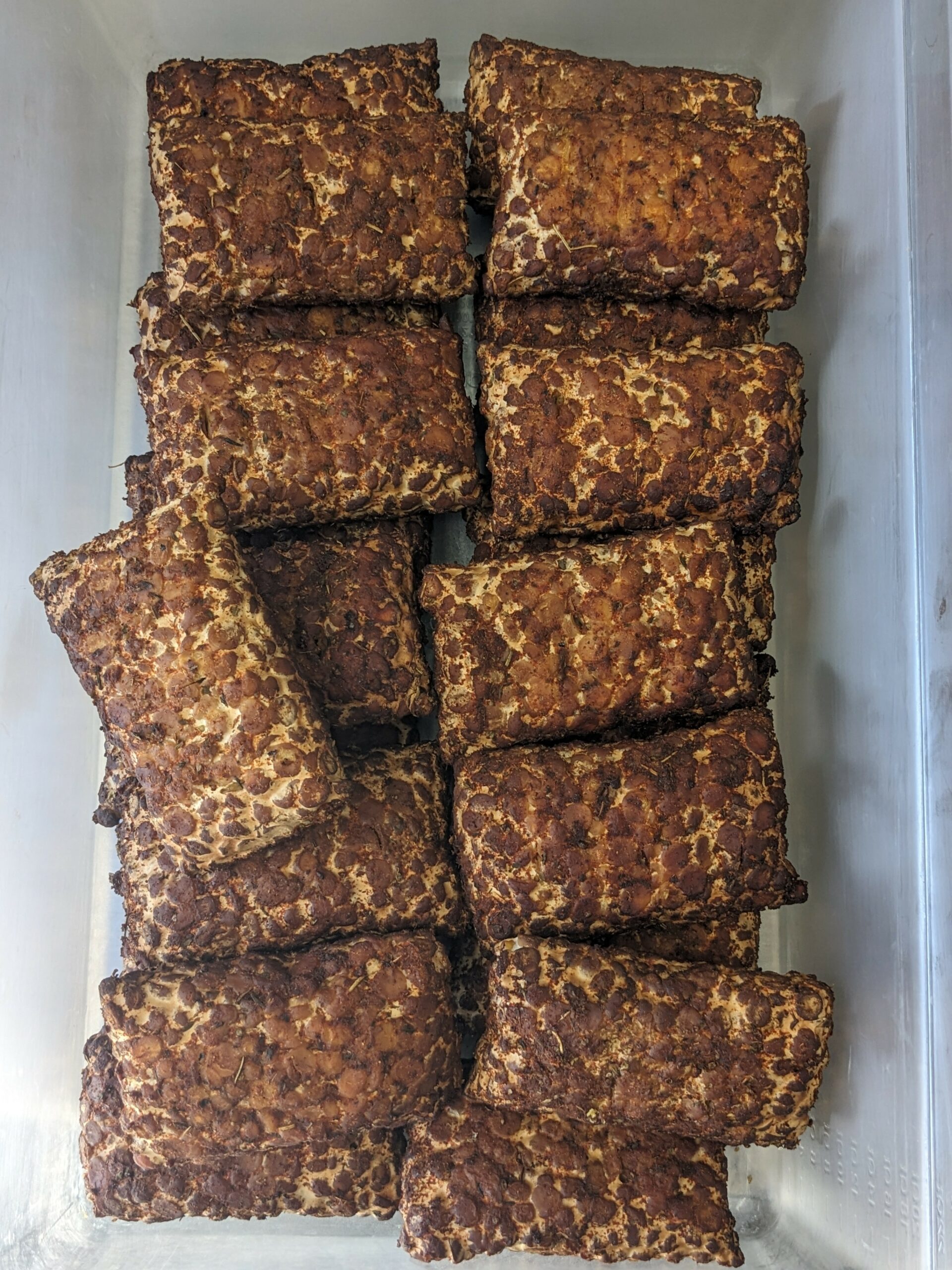We were lucky to catch up with Eric Smith recently and have shared our conversation below.
Eric , thank you so much for taking the time to share your lessons learned with us and we’re sure your wisdom will help many. So, one question that comes up often and that we’re hoping you can shed some light on is keeping creativity alive over long stretches – how do you keep your creativity alive?
Creativity has always been a very important part of my life, and we try to keep it alive within any endeavor. There are often many monotonous tasks that come along with running a small business. The actual production of the product is even rife with monotony. In order to break this up, we put a lot of focus on experimentation. Throughout the year, we produce three main varieties of tempeh (chickpea, black bean, mung dal) for restaurants/grocery stores. We are able to spread our creative wings a little more during farmers market season. This is when we find ourselves experimenting with all sorts of different varieties of tempeh. We’ve made black-eyed pea, french lentil, colorado pinto bean with hominy, red bean and rice, cranberry bean, etc. We’ve also incorporated pumpkin seeds, hemp seeds, and even fresh spirulina in with our favorite beans. In Summer ’23 we began smoking tempeh. We soak the tempeh overnight in a shiitake dashi, then it’s dry rubbed with a spice blend, and smoked over different types of wood. We offer this at the farmers markets as either a bull block of smoked tempeh, or a two pack of burgers. We’ve also been making tempeh “chorizo” and other sorts of marinated goodies. This allows us to continue to engage the creative, flavor-centric parts of our brain, and offers our customers something new to look forward to all the time!
Great, so let’s take a few minutes and cover your story. What should folks know about you and what you do?
We are Little House of Tempeh! LHOT is a small batch tempeh producer based in Fort Collins, CO. Our focus is on producing fresh, living/unpasteurized tempeh. We ferment our tempeh the traditional way – but where we divert from tradition is that we focus specifically on using different varieties of beans/seeds rather than soy beans. There are lots of reasons we so things this way, but the main few reasons are that this offers a much wider blanket of flavor/texture, it is more accessible to our friends with soy allergies, and also is allows us to be creative with our process. We have a two-tiered business plan that has us splitting our time between two models. Our wholesale business is where we offer our product to grocery stores and restaurants. Then we also have our retail side. Specifically farmers markets. The markets are so important to us. Not just from a business standpoint, but this is also where we can chat face to face with our customers. We can make real life connections with the people who are making it possible for us to keep Little House of Tempeh alive and well. Hearing what folks think about our product, and learning how they like to incorporate it into their diet really fills our cup!
You can find us at the Larimer County Farmers Market in Fort Collins, as well as City Park, South Pearl Street, and Highlands markets in Denver!
If you had to pick three qualities that are most important to develop, which three would you say matter most?
The first would be the product. If you have a product you believe in, and there seems to be some organic interest or a gap in the market, that really was step one for us. Practice is number two – I had been making tempeh for 10 years, just for family and friends. Without all that practice, I wouldn’t feel comfortable or ready to bring our product to the people. I believe is it important to maintain a ‘forever student’ mentality in life. Never a master, always a student. There is always something new to learn, and that’s why practice will always be a part of our ethos. Especially when it comes to the ever changing landscape of business. Examples are learning new equipment, adjusting processes to accommodate scaling every now and then, and really just being open to always honing and tweaking things to make the best product we can.
Third would be patience. Patience is invaluable during every single phase of business. From conception, to beginning stages, and all the way through meeting your future goals and milestones. Patience can sometimes be in short supply, so it’s important to try to keep it at front of mind. There is so much that goes into operating a small business, and often this means you have to be learning new skills all the time. Production, accounting, licenses, permits, social media, marketing, and ever growing email inbox, scheduling, inventory, deliveries, packaging. Also, trying to have a life outside of work, haha. The point it that most people are not proficient in all of those areas, so be patient with yourself as you add new skills to your repertoire.
Before we go, maybe you can tell us a bit about your parents and what you feel was the most impactful thing they did for you?
The most impactful thing by parents/family did for me was to simply believe in me. It is so important to be encouraged and supported not just through the good times – but the hard times, too. I am very aware that not everyone was so fortunate with that relationship in their life. I feel for them, and I am cognizant of that good fortune. I would say to try and do your best to surround yourself with friends, and chosen family who can offer that unconditional love, support, and encouragement.
Contact Info:
- Website: www.littlehouseoftempeh.com
- Instagram: https://www.instagram.com/littlehouseoftempeh










